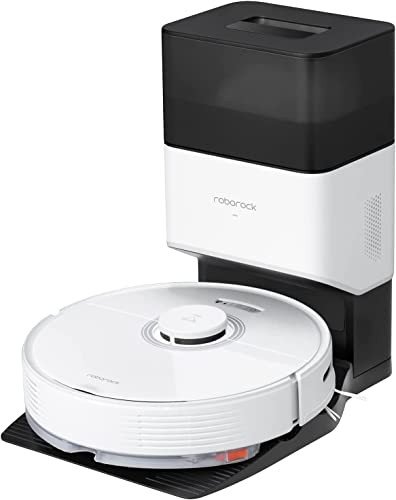Robotic Vacuum Cleaner Comparison: The Future of Home Cleaning
In current years, robotic vacuum cleaners have transformed the method we preserve cleanliness in our homes. With improvements in technology and the incorporation of expert system, these devices have progressed from simple novelty items to essential family appliances. This short article offers a detailed comparison of some of the leading robotic vacuum on the marketplace, helping customers make informed decisions when choosing a model that fits their needs.
Comprehending Robotic Vacuum Cleaners
Robotic vacuum cleaners are self-governing machines developed to clean floorings automatically. Equipped with sensing units, they navigate around challenges and change their cleaning routes for optimal performance. The essential functions that distinguish various designs include suction power, battery life, app connection, navigation innovation, and price.
Key Features to Consider
When comparing robotic vacuum cleaners, prospective buyers should take into account the following elements:
- Suction Power: Measured in Pascals (Pa), suction power determines the effectiveness of getting dirt and particles.
- Battery Life: The length of time a vacuum can operate before needing a recharge substantially affects its cleaning performance.
- Navigation Technology: Models might utilize easy random navigation or advanced mapping technologies (like LIDAR) that permit them to create a map of the home.
- Smart Features: Connectivity to mobile phone apps or smart home systems can improve use and control.
- Filter Type: HEPA filters are recommended for allergic reaction patients, as they trap allergens and enhance air quality.
Comparison of Top Robotic Vacuum Cleaners
Below is a comparison table of a few of the very best robotic vacuum cleaners available in 2023:
| Model | Suction Power (Pa) | Battery Life (min) | Navigation Technology | Smart Features | Price (GBP) |
|---|---|---|---|---|---|
| iRobot Roomba i7+ | 1700 | 75 | Smart mapping | App control, voice command | ₤ 949 |
| Roborock S7 | 2500 | 180 | LIDAR | App control, multi-floor | ₤ 649 |
| Neato D7 | 2000 | 120 | LIDAR | App control, zone cleaning | ₤ 599 |
| Ecovacs Deebot T10 | 3000 | 150 | Smart mapping | App control, room detection | ₤ 799 |
| Shark IQ Robot | 1200 | 90 | Random | App control, self-emptying | ₤ 399 |
Explanation of the Table
- iRobot Roomba i7+: Known for its robust cleaning ability, it includes smart mapping technology that allows it to designate specific areas for cleaning. Its self-emptying feature is a plus for convenience.
- Roborock S7: This design masters suction power and battery life, making it ideal for larger homes. Its LIDAR innovation assists create an efficient cleaning path, and it can vacuum and mop all at once.
- Neato D7: The D-shape style permits better corner cleaning, and it includes strong suction power. Its LIDAR navigation allows it to draw up cleaning areas accurately.
- Ecovacs Deebot T10: Boasting the highest suction power and advanced navigation, this model can manage several floorings successfully. It's a flexible choice for households with differing floor types.
- Shark IQ Robot: A budget-friendly option that still provides smart functions. Its self-emptying ability and app combination make it a useful choice for those trying to find a strong cleaning companion without breaking the bank.
Benefits of Robotic Vacuum Cleaners
Robotic vacuum use many advantages that contribute to their rising appeal amongst consumers:
- Time-Saving: Automated cleaning permits users to maximize important time that can be invested in other activities.
- Convenience: Many designs can be set up by means of apps to clean at specific times, reducing manual effort.
- Accessibility: They can reach under furnishings and in tight areas where conventional vacuums may have a hard time.
- Daily Maintenance: Regular usage of robotic vacuums can assist maintain a regularly clean environment, promoting much better total home health.
FAQs About Robotic Vacuum Cleaners
1. How frequently should I run my robotic vacuum?
It is recommended to run the robotic vacuum at least 2-3 times a week to keep cleanliness, though daily use can be advantageous, particularly in homes with animals or high foot traffic.
2. Do robotic vacuums deal with carpets?
Yes, lots of robotic vacuums are designed to work on carpets, but efficiency may differ based on the model's suction power and brush type. Try to find models specifically discussed as reliable for carpets.
3. Can robotic vacuums clean pet hair?
Many robotic vacuums can efficiently get pet hair, but those with strong suction and tangle-free brush designs are especially appropriate for this task.
4. How do I preserve my robotic vacuum?
Regular maintenance includes cleaning the brushes and sensing units, clearing the dustbin, and occasionally changing filters to ensure optimum efficiency.
5. Are robotic vacuums worth the financial investment?
While they tend to be more expensive than standard vacuums, the convenience, efficiency, and time-saving elements make them a worthwhile financial investment for many households.
The marketplace for robotic vacuum cleaners continues to expand as technology evolves, using consumers a range of options to match different cleaning needs and budgets. By thoroughly thinking about Best Robot Vacuums as suction power, battery life, and smart abilities, users can choose a model that lines up with their lifestyle. Whether for convenience, ease of use, or remarkable cleaning efficiency, robotic vacuums are undoubtedly reshaping the future of home cleaning.

